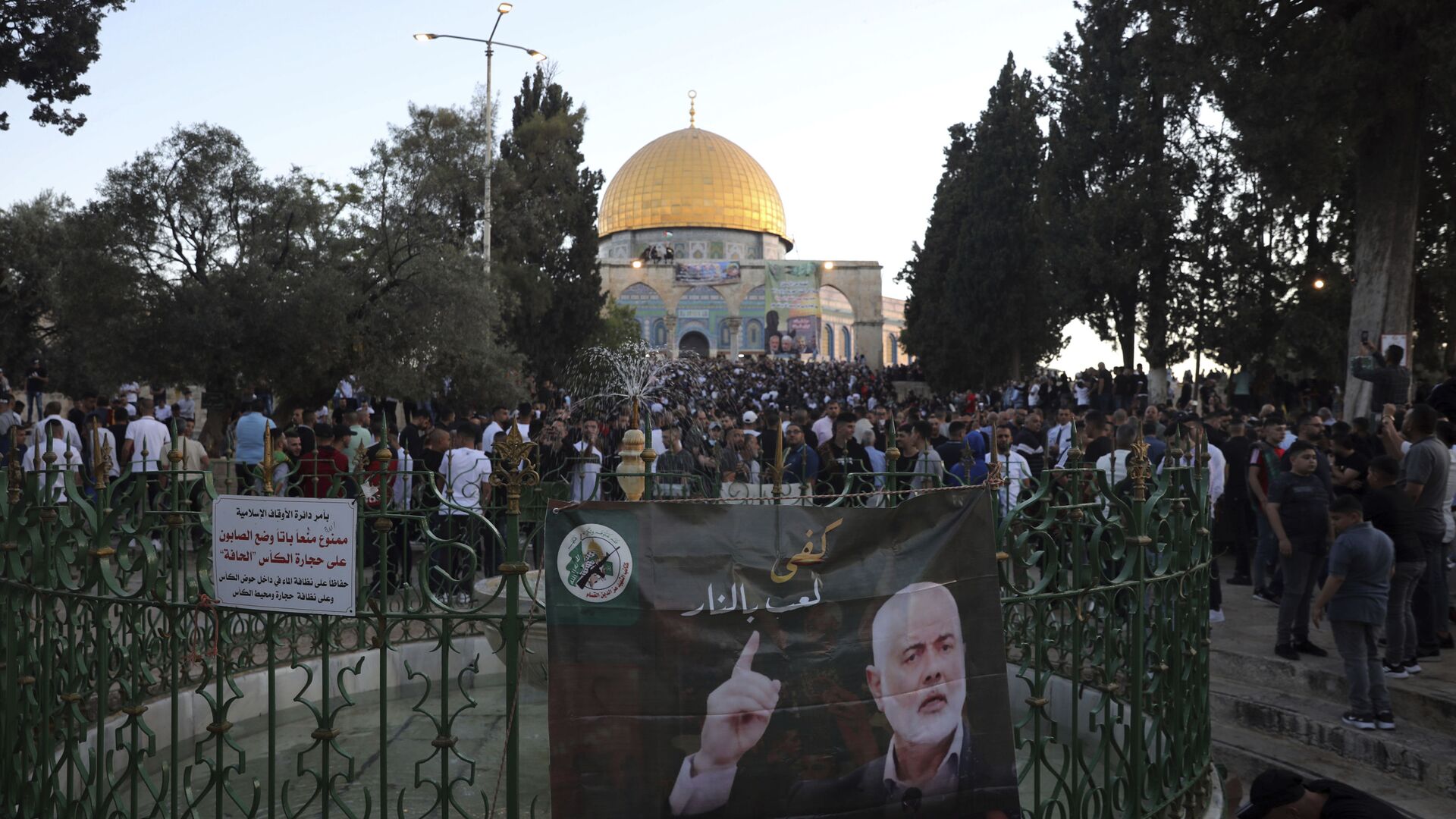As Gaza Prepares to Mark Eid al-Fitr, Dire Economic Crisis Casts Gloom Over Festivities For Locals
06:26 GMT 01.05.2022 (Updated: 09:22 GMT 05.12.2023)

© AP Photo / Mahmoud Illean
Subscribe
Over the past year, the purchasing power in the Palestinian enclave has fallen by 40 percent. A local merchant blames the situation not only on Israel but also Hamas and Fatah, who failed to cater to the needs of the population.
Raed Nassar, a 49-year-old clothes merchant from Gaza City, has been waiting for the beginning of Eid al-Fitr, a three-day celebration that ends the month of Ramadan, in the hopes he would make money.
Preparing for Eid al-Fitr that this year will take place during the day on Monday, 2 May, and the celebrations begin that evening. Muslims around the world tend to get ready for the holiday by hurrying to the local markets to buy food, clothes and decorations, making it a lucrative time for merchants and shop-owners.
Business Is Suffering
But this year, Nassar says, profit is almost "non-existent".
"It is the worst pre-Eid season I have seen in years," he complained. "I have bought many items of clothing but they are now in the stockroom. I have only sold a tenth of what I managed last year," he added.
The merchant says the sharp drop in sales has been caused by dire fiscal conditions in the coastal enclave.
The economic situation in the Gaza Strip has never been stable but it has dramatically deteriorated since 2007, when Hamas, an Islamic group, took control of the region and ousted officials of the rival faction Fatah.
In response, Israel, which considers Hamas to be a terrorist organisation, imposed a tight blockade of the enclave, which led to an unprecedented economic crisis and caused the rates of poverty and unemployment to rocket.
The outbreak of the coronavirus pandemic and the ensuing shutdowns exacerbated the situation and the result is that purchasing power has plummeted 40 percent compared with previous years.
When, in May 2021, the Gaza Strip finally emerged from lockdown its economy was dealt another blow: responding to the threat from Hamas militants, Israel launched Operation Guardian of the Walls, destroying the enclave’s infrastructure and sending even more thousands into unemployment and homelessness.
"We got nothing for the destruction Israel has caused. Hamas didn't compensate us, and the Palestinian Authority hasn't helped us either. They lack any strategic plans. They do nothing to protect us from these losses. So what we are facing right now is a total disaster," lamented Nassar.
No Help on Horizon
The Gaza Strip does not have a social welfare system that can protect its impoverished population and people rely heavily on foreign donations and the assistance of various NGOs.
Furthermore, there is no unemployment office in the enclave, and those looking for a job, need to rely on their own wits to put food on the table. Nassar says he will have to make greater efforts than before to stay afloat.
For now, Nassar is bereft of ideas. The markets that used to be buzzing are now empty, and he doesn't know what to do to make up for the loss in income.
"I am not optimistic about what the future might hold for me, my family or all Gazans. I hope that next year the situation will be better. But for now, this Eid al-Fitr is far from being happy and festive, as we would like it to be".
